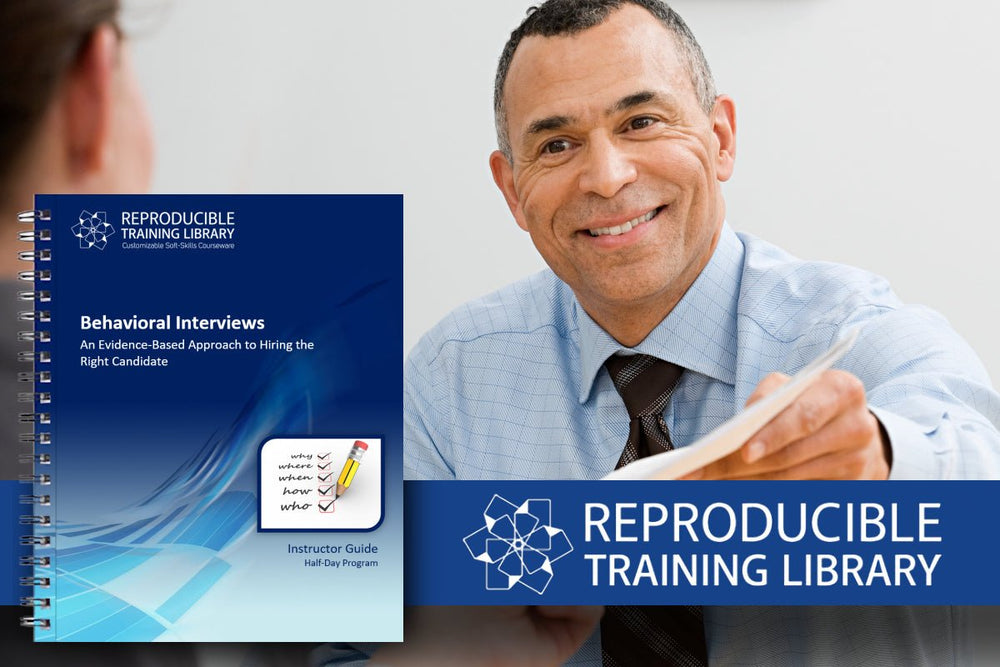Share
What Are the Different Types of Interview Rounds When Hiring?
Bradford R. GlaserWhat happens behind the scenes in hiring? From the time you first look at your resume to the moment the final handshake occurs, the process is pretty complicated. This difficulty makes it difficult for both job seekers and employers to find the right fit for their team. The importance of every interview stage cannot be overstated – it can determine if you snag the job or have to continue looking.
So, how do employers choose who advances? Becoming close to the different types of interview stages will show the process and help everyone – both candidates and companies – achieve better hiring results. We're talking about the essentials of interviews, focusing on the methods and reasons behind each important phase.
Are you making an important career move, or are you attempting to change your company's hiring strategy? Let's talk about it!

- Minimizes Hiring Risks
- Evidence-Based Selection
- Comprehensive Training Tools
Table of Contents
Job Application Interview Types
When you go through an interview process, you'll run into all sorts of tests that go beyond your resume to check out your actual skills. What do these tests show about you? Let me go over some common ones and explain why they're super important.
First off, cognitive tests. This attention to important skills like problem-solving, important thinking, and how fast you can process info. These skills are super important for jobs that need you to be sharp or make quick decisions. To help with your chances, I'd recommend practicing these tests first – especially if the job calls for tough analytical skills.
Next, let's talk about these personality assessments. These are all about seeing how your traits might tone with the company's culture. When you're filling out questionnaires or handling hypothetical situations, these tests find out how well you'd combine with a team and adapt to the workplace tone. While you can't study for these, just being honest and aware of yourself can help both you and your potential boss.

Then there are job simulations. Have you ever had to quickly make a sample press article, code an easy notch in an app, or design a rough logo during an interview? These simulations mimic real job tasks and give you a clear picture of how you use your skills in real work. It's smart for candidates to try these tasks whenever they can.
Employers really should use these tests with a clear job, which means they need to match the specifics of the job. Keeping things steady by giving everyone the same assessments will ensure fairness, and evaluating candidates against a solid set of needed skills and behaviors helps make fair hiring choices.
So, what change do these tests have on your vetted chances of landing the job? Whether it's sharpening your analytical skills or getting the hang of job-specific tasks, remember - each test is your opportunity to show off the best version of yourself.
Isn't putting in that extra effort worth investing in your future?
1: Technical Interviews
Understanding technical interviews is important, especially for positions that need specific skills. These interviews are basically your usual job interviews because they pay attention to how well you handle precise technical tasks. What distinguishes them, you might ask yourself?
From my experience, in a technical interview, you're expected to show your skills in programming, problem-solving, and technical tasks. You might be needed to solve algorithm problems, work with data structures, or design system architecture on the spot.
The questions might be as easy as coding in a language you're close with, or as hard as designing a complete system for a tough issue. Each question was built to look at your technical skills and your ability to think creatively in solving problems.

So, how do you prepare for these difficult tests? Well, it is important to understand the basics in your field. Being skilled in the common tools and languages used in the workplace is also very beneficial. Regular practice with online coding challenges, studying case studies, and keeping up with technology patterns will sharpen your abilities.
For those of you who are designing the questions, you should create tests that challenge both theoretical knowledge and practical skills. Mixing these aspects helps measure a candidate's overall ability and capacity to address complicated problems. I have seen that scenarios that mimic real-life issues motivate candidates to think of new solutions, which is extremely important for the part.
Remember, acing your preparation and execution of a technical interview can make you stand out in a competitive field!
2: Behavioral Interviews
Behavioral interviews are super important when you're hiring because they let you see how a candidate might do on the job by checking out what they've done before. If you're trying to find out if someone's good at dealing with conflicts, working with others, or leading in tough times – behavioral interviews are your favorite!
During these conversations, you get to ask questions that dig into the main skills like teamwork, ethics, and handling disagreements. Candidates usually tell tales about times they've shown these skills giving you a look into how they deal with people and if they'd jive with your company's vibes and values.
A big hit in these interviews is the STAR method: Situation, Task, Action, Result. This strategy gets candidates to spill the beans about their experiences in a story-like way. They talk about a specific challenge they faced. What they had to do. What they actually did and what happened in the end. Getting good at this method helps you see if someone's past actions fit what your company is all about.

Even the ex-lead of HR at Google has said that behavioral interviews are super useful for finding people who meet your immediate needs but will also help your company grow in the long run. This strategy weeds out candidates who might not be the best fit now and also those who are ready to address future challenges and combine well with your company culture as time goes by.
Behavioral interviews work great, too. To give you an example, a pilot study in an anesthesiology residency program used behavioral interviews to pick candidates based on important competencies – both the faculty and the candidates were all for it, proving it's a solid way to snag impressive people for specialized jobs.
The Defense Logistics Agency (DLA) leans on behavior-based interviews, too, finding them more reliable in predicting how well someone will do on the job compared to traditional interviews. When you work behavioral questions into your hiring schedule, make sure to customize each question to the job's must-have skills. This will ensure you pick people who've shown they can deliver and will likely add positively to your team and culture.
So remember, asking the right questions can really show a candidate's potential!
3: Panel Interviews
Facing a panel interview can be a bit scary as you're talking to a few people all at the same time. As each member of the panel might look at different aspects, like your ability to handle pressure or your consistency in responses, this can add to the nerves!
So, how should you address this? Well, first, I'm trying to learn who's on the panel. I understand their roles and what they might pay attention to. This knowledge can help guide you in anticipating their questions and displaying the right skills.
Then I use the STAR method to organize my answers. This strategy helps me give you clear and structured responses, which is super important when you're addressing a group.

Make sure to connect with each panel member, too. I keep steady eye contact and use their names if possible. This shows respect and also helps keep your interactions personal and involved. Besides, I always monitor my speech volume and pace to make sure everyone can hear and understand me well.
Asking questions is also an excellent thing to do. It shows your interest and preparation. I try to customize my questions to match the discussion and reinforce that I'm attentive and actively involved in.
Lastly, we have to not forget the importance of a follow-up thank-you email. It's such an easy gesture that keeps you in their thoughts and shows your excitement for the position. In short, to succeed in a panel interview, it comes down to being fully prepared, involved actively, and communicating clearly.
4: Competency Interviews
Competency interviews are pretty important when you're applying for jobs that need specific skills or behaviors that are important for the part. It's kind of like demonstrating how well you fit with the job through all sorts of scenarios or tasks. These interviews usually use practical tasks to choose how you handle actual job situations. To give you a clearer picture, they want to see if you can manage a crisis or solve a problem. That's exactly what the interviewer is excited to find!
The questions in these interviews look to get full and relevant examples of your past behaviors or achievements. You might find yourself describing a time when you were managing a project under a tight deadline. The STAR method (Situation, Job, Action, Result) can be super helpful here as it lets you structure your answers in a way that's easy to follow, keeping your thoughts organized and making it easier for the interviewer to understand your thought process.

You may also see practical tests, like drafting a plan or dealing with a role-playing scenario like a difficult customer. Sometimes, you could even receive hypothetical questions that probe how you would handle potential challenges. These different types of questions are directed at carefully looking at your analytical skills and decision abilities.
When making for a competency interview, reflect on times when you demonstrated important abilities needed for the job. Think about all sorts of situations in which you used your expertise to solve problems, lead teams, or innovate processes. Being able to clearly describe these experiences is important for making a strong impression.
The importance of acing competency interviews is to give you responses that show your previous experience while closely lining up with the job requirements. Make it a point to carefully review the job description and customize your skills and experiences to match it. This focused preparation will help you present yourself as a great candidate for the part, showing employers just how well you meet the needs of their organization.
5: Final Interview and Negotiation Strategies
Getting to the final interview round is a pretty big deal for both you and the interviewer. At this point, the conversation usually turns to a closer look at salary and benefits. Here's your great opportunity to land a package that matches your worth!
Employers, in contrast, look to determine if you align with their business goals and fully appreciate what you contribute to the organization.
At this stage, employers need to choose how well you mix with the company culture and team. They present all the compensation details, like benefits and opportunities for career advancement, working for a clear and shared understanding before making any final decisions. Realizing the importance of this stage can completely change your strategy.

Why do salary conversations often last? As a candidate, it's important to come prepared to support your salary requests with solid facts and show how your skills meet the company's needs.
Employers need to negotiate within their budget while acknowledging your potential contribution to their organization. Their transparency in how they determine salary figures helps clarify everything. Their responsibility is to make sure that both parties are content in the long term.
Useful negotiation will need complete preparation and shared respect. A good strategy means both parties being open to compromise if needed, and changing aspects of the job like the salary, benefits, or other parts. Remember, negotiation extends beyond the salary – it also encompasses bonuses and opportunities for professional growth.
Ignoring these strategies might lead to you not fully valuing your abilities or missing out on a job opportunity!
Learn About Your Behavioral Interviews
The number of interview types reflects the need to carefully look at a candidate's fit and potential in a company. We start by conducting the initial screening interviews, which quickly check qualifications. We then proceed to more complete technical and debilitating evaluations. The goal here is to find someone who is and also someone who will grow with the organization.
Is your company equipped with all the needed tools and training to manage these important interview types? It's pretty important to make sure your hiring team is prepared and capable! But, the preparation process can often be a bit overwhelming or disjointed. This often leads to inconsistent hiring decisions that waste time and resources.

If you're thinking about improving your interview process, just think about how HRDQ's Behavioral Interviews Customizable Courseware might simplify and help with your strategy. This great customizable course was built to help teams conduct structured interviews that use past performance as a reliable indicator of future behavior. It is available for virtual and in-person training. It comes with facilitator and participant guides, which makes it a really important part of HRDQ's powerful Reproducible Training Library for corporate training.
Could a well-organized, useful strategy for behavioral interviews turn around your organization's hiring process? As you rethink your hiring strategies, think about how HRDQ can help in refining your processes, helping you to meet and even exceed your hiring goals with each new candidate group.
Every wrong hire costs you time, money, and effort – are you ready to improve your interview process?





















































